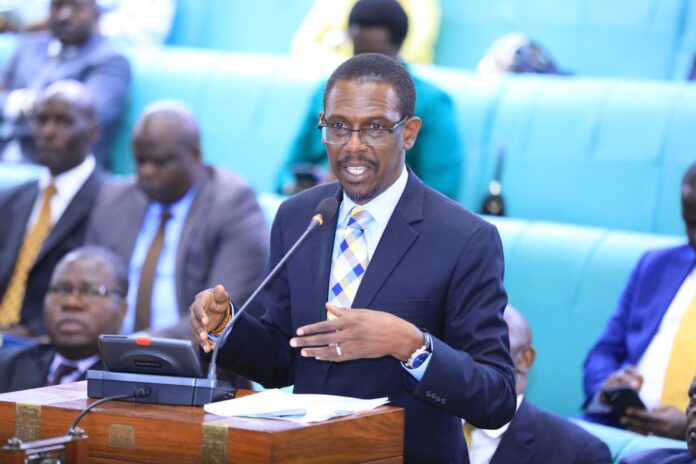The Uganda Peoples’ Defence Forces (Amendment) Bill, 2025, has been passed into law by the Ugandan Parliament on Tuesday 2025, igniting fierce debate and leading to a dramatic walkout by opposition Members of Parliament.
The bill, which allows for the trial of civilians in military courts under “exceptional circumstances,” has drawn sharp criticism for what opponents claim is a violation of constitutional rights and a lack of public participation.
The controversial legislation was passed despite a minority report vehemently opposing its enactment. The most contentious aspect of the bill reverses an earlier Supreme Court ruling that deemed the trial of civilians in military courts illegal.
While presenting the report from the Defence and Internal Affairs Committee of Parliament, Chairperson Wilson Kajwengye(MP) stated that the committee acknowledged the sensitivity of the issue.
“The Committee examined this matter and concludes that the trial of civilians by military courts should occur only in exceptional circumstances, ensuring that a fair trial is guaranteed,” he said.
Moses Okot Junior, presenting the Minority Report, argued that granting the General Court Martial (GCM) powers to try capital offences would be unconstitutional.
He emphasized that the GCM should be subordinate to the High Court and that military courts martial cannot be impartial and independent, thereby making them unconstitutional and violating principles of fair hearing and natural justice. H
e further urged MPs to reject the bill, citing a lack of adequate public participation and consultation.
During the heated debates preceding the vote, opposition MPs, led by Leader of Opposition Joel Ssenyonyi, staged a walkout from the 34th Sitting of the 3rd Meeting of the 4th Session of the 11th Parliament.
Ssenyonyi condemned the Committees on Legal and Parliamentary Affairs, and Defence and Internal Affairs, for what he described as a rushed process lacking inclusiveness. He accused the committees of hastily processing the bill without allowing sufficient time for public submissions and engagement.
“My colleagues and I are hard pressed to participate in this process. We shall leave you here to participate in it. Process your Bill pretending that you are engaging the input of Ugandans and yet not,” Ssenyonyi stated, labeling the process a “sham.”
Despite the opposition’s protests, Speaker Anita Among insisted that all sides be heard, allowing for the presentation of both the committee report and the minority report.
MP Fadhil Chemaswet defended the bill, arguing that military courts martial are critical in enforcing discipline within the military.
The passing of the UPDF Amendment Bill, 2025, is likely to fuel further debate and potentially legal challenges.
Civil society organizations and human rights advocates are expected to voice their concerns over the potential for abuse and the erosion of civilian justice in Uganda.
The focus will now shift to how the new law is implemented and whether the promised “exceptional circumstances” are clearly defined and adhered to, ensuring that the rights of civilians are protected.



